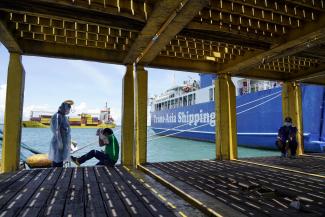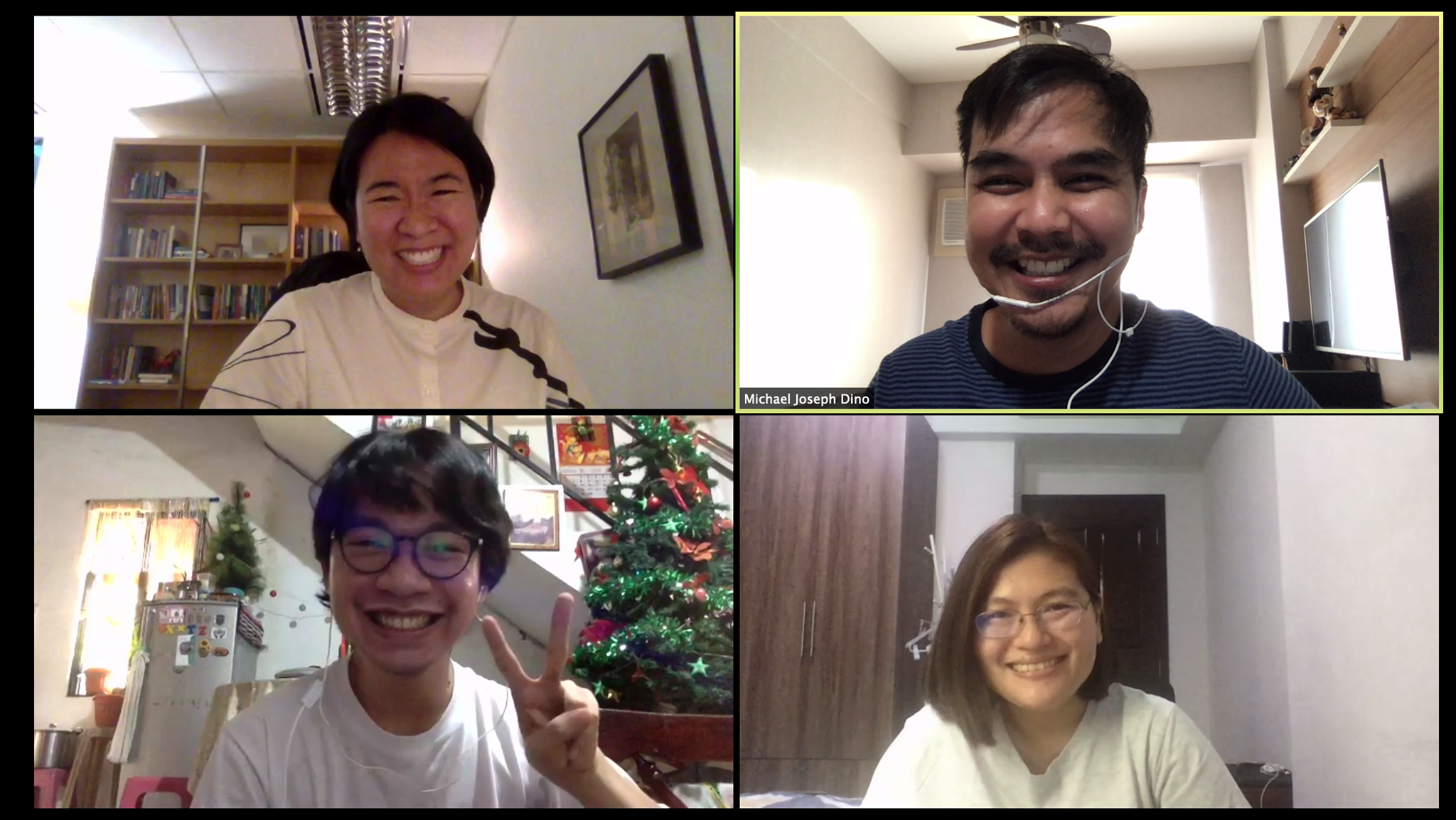
Singapore Management University (SMU) School of Social Sciences (SOSS) Assistant Professor Yasmin Ortiga and her research team were recently awarded the Social Science Research Council (SSRC) (New York) Rapid-Response Grant on Covid-19 and the Social Sciences.
It was a competitive grant and out of the 62 projects selected, SMU was one of the eight universities from Asia chosen from over 1300 applications across the world. Those awarded with the grant will examine the wide-ranging impacts of Covid-19—including on education, the workplace, health care, and religious practices—from the perspectives of a range of disciplines, from anthropology to political science to psychology. Taken together, the Covid-19 Rapid-Response Grant recipients illustrate the immense potential of the social sciences not only to elucidate the greatest challenges facing our society but also to lay a blueprint for how they might be overcome. You can read more about the grant here.
About the research topic
The team’s research topic is on “Deferred Departures, Unhappy Returns: Pandemic and the Labor-Exporting Nation” and they will explore the impact of the COVID-19 crisis on places that export migrant labour and the experiences of the people caught in these disruptions. Focusing on the Philippines, the project examines how the pandemic upsets two extreme ends of the labour-export system: the deployment of migrant workers to employers in other countries and the reintegration of those who had been forced to return home. They will investigate how, in addressing these issues, the Philippine state has mainly treated its citizens as commodities to either be reallocated or reserved. This project aims to reveal how this worsens workers’ problems, undermining individuals’ capacity to cope with and recover from the pandemic’s impact on their lives.

The research team
The project runs on the commitment and efforts of Filipino researchers based in Singapore and the Philippines. Apart from Asst Prof Yasmin Ortiga, they include Co-Principal Investigator Karen Liao, a doctoral candidate from the Department of Geography, National University of Singapore and Michael Joseph Diño, research director at Our Lady of Fatima University, a private Philippine university that offers programmes in both nursing and cruise line operations. The team also includes Luis Macabasag, a registered nurse who also works as a research staff in one of the largest Covid-19 referral hospitals in the Philippines.
Why do research on Labour Export and Migration?
When asked why she chose to research on this topic, Asst Prof Ortiga shared that, “I had been studying Filipino labour migration for many years and the Philippine government is widely known for marketing and exporting its own citizens to overseas employers. Advocacy groups and migration scholars have long critiqued this dependence on labour export as unsustainable. However, it was only during the pandemic that we really saw how vulnerable the entire system could be. On one end, travel restrictions and border closures prevented aspiring migrants from leaving the Philippines. On the other end, hundreds of thousands of Filipino workers overseas were losing their jobs and trying to get back home. Philippine state agencies were having to deal with both issues at the same time, and the state’s resources were simply overstretched.
Yet, in the first few months of the pandemic, international news outlets were mainly focused on how wealthy countries like the US had to cope with the lack of migrant workers due to Covid-19. There was hardly any reporting on how the pandemic had impacted the places that these workers came from. Thus, I thought that it would be important to document the experiences of those in the migrant-sending country.
When talking about the impact of the pandemic on migrant-sending countries, it is often easy to revert to statistics on labour supply and monetary remittances. Our project wanted to make sense of this problem from the perspective of people’s experiences. We believe that in highlighting how Covid-19 disrupts people’s lives and plans for the future, we can push state agencies to look beyond the problem as one that is only about economy.”
What the team intends to do with this research project
Since April 2020, the research team has conducted 95 interviews with two groups of Filipino workers: 1) aspiring nurse migrants unable to leave the country due to border closures and a state deployment ban on health workers; and 2) service staff from the cruise industry who have been repatriated to the Philippines after losing their jobs abroad.
It is important to note that before the pandemic, the Philippine government had actively exported these two groups of workers to the global market. The Philippines is currently the world’s largest source of foreign nurse labour while Filipinos comprise up to 30% of service staff in the global cruise industry. Now, both groups find themselves suddenly immobile, with the pandemic changing the value of their skills in contrasting ways.
As part of the SSRC’s programme, the main purpose of the project is to disseminate findings right away and the team will be writing a report to be distributed to government agencies in the Philippines, as well as non-profit organisations that have been advocating for migrant worker rights. They also aim to make these findings available to international NGOs like the International Labour Organisation (ILO) and the International Organisation for Migration (IOM).
How the research grant will aid the team’s project
According to Asst Prof Ortiga, “What is wonderful about the SSRC Rapid Response Grant is that it understands the urgency and unique circumstances of doing research during the pandemic. The grant was meant to provide social scientists with the means to make sense of how Covid-19 has impacted social life – and to do so despite the limitations of lockdown and social-distancing.
For the first two months of the project, both Singapore and the Philippines were in the middle of lockdown. As such, we recruited most of our interviewees through Facebook and conducted all our interviews through the phone or online. Even after the lockdown, we could not meet our interviewees in person. As such, while I had some funds to draw from, the rest of the team (especially those in the Philippines) were using their own money to pay for expenses like cell phone calls and internet data.”
The SSRC grant may not be a large amount – about 10,000 SGD – but it provides the team with a lot of flexibility. First, it allowed them to pay for research assistants and transcribers who can speak Filipino and are based in the Philippines. It will also pay for communication expenses incurred by team members for research so they do not have to spend their own money to conduct interviews. While such expenses can also be covered by other research grants, the SSRC does away with a lot of the bureaucracy that slows down fieldwork.
Says Asst Prof Ortiga, “For the team, perhaps the best part of the SSRC Rapid Response Grant was the recognition we received. When you have something as massive as a global pandemic, you sometimes wonder if anyone cares about what goes on in a small country like the Philippines. We wanted to show how the pandemic affects a labour supply chain that profits off the movement of people, not things. The award gives us the confidence that this is an issue worth investigating and a story worth telling.”
Heartiest congratulations to Assistant Professor Yasmin Ortiga and team, for receiving the SSRC Rapid-Response Grant on Covid-19 and the Social Sciences. We look forward to how their research will make meaningful impact through their findings which will inform decisions and help shape policy.